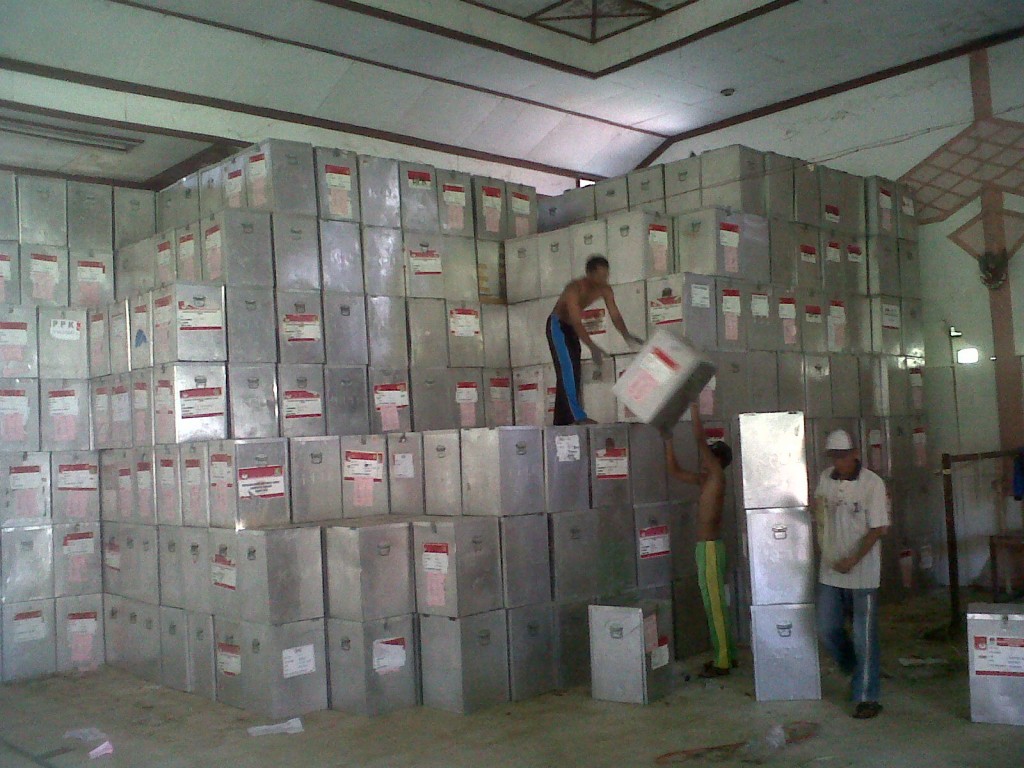Considering the enormity of the task it faces, the National Election Commission (KPU) and its associated bodies have, in the past, done a good job of administering national and regional elections. But with 478,685 polling stations due to return results in the next two weeks, their oversight capacities will be stretched.
Fraud in the vote-counting process has proven to be a big problem despite the measures already put in place. Votes are nearly always counted immediately after polls have closed, often with officials holding up each ballot to the community members present.
But as the manual tabulation from each polling station is passed through four more administrative levels to be eventually reported to the National Election Commission, there is a lot of potential for manipulation.
Indeed, bribing election officials is now considered a better bet than offering money to potential voters, who can’t be relied on to follow through on their vote. After every national election thousands of complaints are made, and many election commission employees sacked – over one hundred lost their jobs after April’s legislative election.
Despite all the examples of vote-rigging at the local level, there has never been any evidence of a systematic orchestration of fraud. But if ever there was a supportive context for systematic fraud, this election is it.
The tight results from the quick counts, coupled with the divisive nature of the campaign and the grand levels of funding all militate for a very busy few days of behind the scenes fixing.
This is where the hundreds and thousands of volunteer election observers will be key. In many ways, the election of Jokowi is a symbolic win for Indonesia’s civil society, a kind of fruition of the street demonstrations of ‘98.
But if he is officially declared the winner on July 22, it will be a triumph not just for the candidate or the campaign team, but also for the volunteer observers who have just spent a long night at polling stations up and down the country.
Jacqueline Hicks is a researcher on the Elite Network Shifts project at KITLV.
 Facebook
Facebook  Twitter
Twitter  Soundcloud
Soundcloud  Youtube
Youtube  Rss
Rss 
